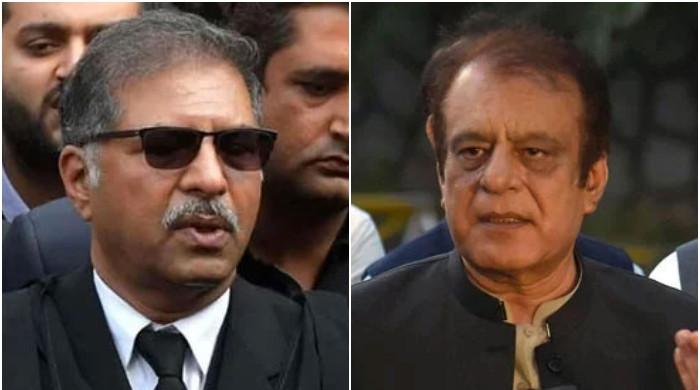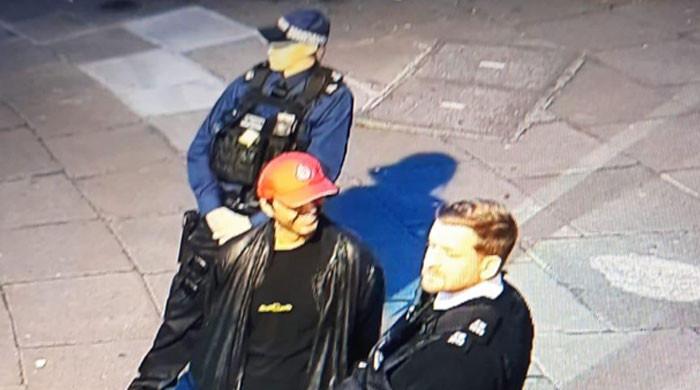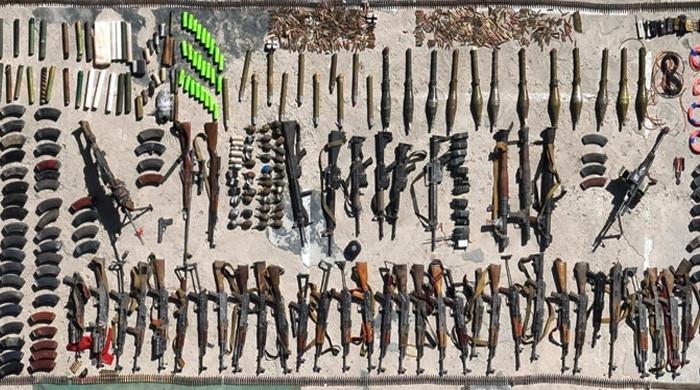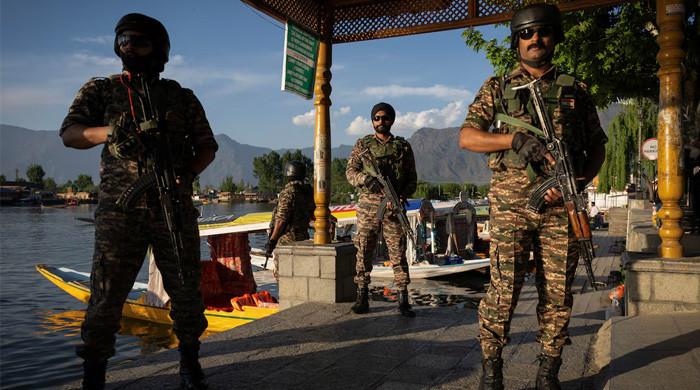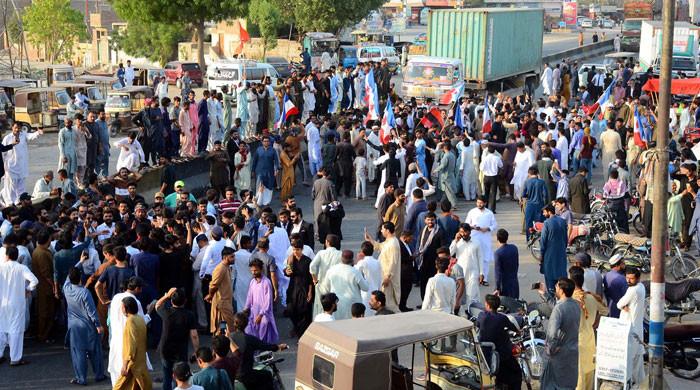Fact-check Imran Khan claim: Geo exposed anti-Pakistan campaign before EU Disinfo Lab
It was Geo News that first exposed how Geneva was being used as a centre for anti-Pakistan activities
August 11, 2022
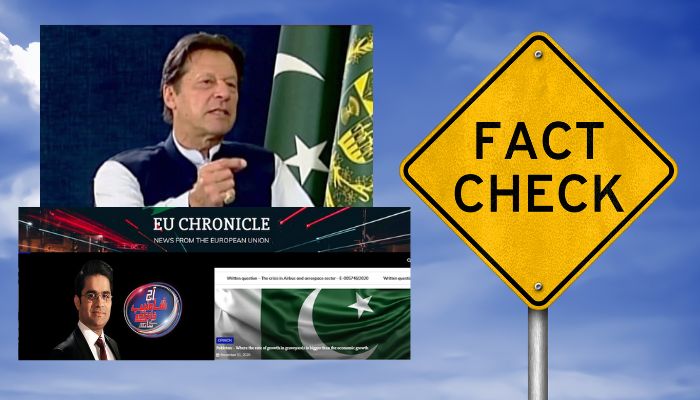
Former prime minister and PTI Chairperson Imran Khan has taken credit for bringing out the European Union Disinformation report, but the fact of the matter is that Geo had exposed the scandal of fake news and fake NGOs operating against Pakistan three years before European Union (EU) non-profit group EU Disinfo Lab released a detailed report, taking help from the investigation first aired on show Aaj Shahzeb Khanzada Kay Saath and published in The News and Daily Jang.
In an address on Wednesday related to Shahbaz Gill’s arrest and other issues, the former PM claimed that the PTI social media team had the EU Disinfo Lab report.
The former PM said: "Not sure if you remember or not that our devoted social media activist exposed the European Union disinformation lab. What was it? There were 800 fake sites in it. These fake sites were involved in constant propaganda against Pakistan, and many Pakistani journalists were part of it. Some of those who are part of this imported government were part of that too. They were doing two things: attacking the Pakistani army and Imran Khan. Their issue was that they were working together."
The EU Disinfo Lab published its findings on 9 December 2020 – "Indian Chronicles: a deep dive into a 15-year operation targeting the EU and UN to serve Indian interests" – on India's massive disinformation campaign against Pakistan through the use of different NGOs, fake protests, and websites.
But it was Geo News that first exposed how Geneva was being used as a centre for anti-Pakistan activities. In a 12-minute broadcast on September 19, 2017, Geo News — via Shahzeb Khanzada's show — revealed how the Indian government was paying for staged protests against Pakistan using hired students and how a full-fledged anti-Pakistan operation was being carried out against Pakistan.
The English website of Geo News had published the report under the headline "Geneva poster campaign jolts Pak-Swiss diplomatic relations".
The detailed report was printed on September 20, 2017 in the Daily Jang and The News, headlined: "Indian mission in Geneva behind anti-Pakistan campaign".
Based on several weeks of groundwork in Geneva, this correspondent reported how an anti-Pakistan blitz was being run on billboards, buses, rickshaws, and websites, and how an army of paid volunteers was assigned to run this campaign to malign Pakistan at a time when the 36th session of the UNHRC was underway.
The investigation had established that the Indian mission in Geneva was controlling anti-Pakistan activities, and the local Swiss administration had been paid heavy amounts in commercial deals for these campaigns across its public transport, road networks, and private business venues.
A similar investigative report was launched three years later by a European Union (EU) non-profit group called EU DisinfoLab, which found that India's Srivastava group had been involved in a 15-year-old operation targeting international institutions and serving Indian interests. Its main goal, though, was to attack Pakistan and make it look bad by spreading fake news and running fake campaigns.
The EU DisinfoLab said that the network's main goal was to "discredit Pakistan internationally" and try to change decisions made by the UN Human Rights Council (UNHRC) and the European Parliament.
This correspondent had established through video evidence on Geo News how anti-Pakistan posters appeared on dozens of billboards across the UN Human Rights Council (UNHRC) building in central Geneva in almost a square mile, sponsored by an organisation called "Balochistan House" – the same NGO was quoted three years later in the EU Disinfo Lab report.
Geo News had shown through videos how anti-Pakistan posters were decorated on local trams running around the UNHRC building and buses with routes leading to and around the UN buildings.
After the scandal was exposed in this publication, Ambassador Farukh Amil, then permanent representative of Pakistan to the United Nations (UN), wrote to the Swiss authorities to take action, and Pakistan's Foreign Office summoned to the Foreign Office Switzerland's then Ambassador-designate Thomas Kolly to condemn the anti-Pakistan posters.
According to Geo's report, Pakistan had told the Swiss envoy that activities on its soil were against "Pakistan's sovereignty and territorial integrity, in contravention of the UN Charter and international law."
"The use of Swiss soil by terrorists and violent secessionists for nefarious designs against Pakistan and its 200 million people is totally unacceptable," said the ambassador, demanding that the incident be "fully investigated with a view to blocking its recurrence in the future."
After asking at the local government council, this reporter found out that the "Balochistan House" had signed "commercial contracts" with the city government and advertising companies to "service" the campaign, and that if the campaign was canceled, it could lead to legal claims.
A separate standee campaign carrying slogans against Pakistan with a focus on minorities was also rolled out by the group calling itself the EOPM and Pakistan Human Rights Organisation. These standees were manned by two European teenagers.
Geo had published how several fake websites are being run and operated from India carrying similar content focused on Pakistan but published under different names and titles.





